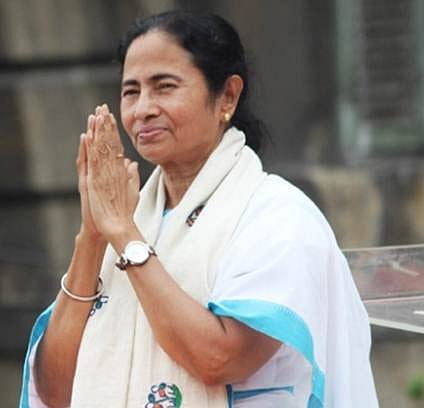It is always a single incident that forces a society to finally stir itself out of its natural somnolence and raise its collective voice of indignation. We can still remember how the brutally murderous gang rape of a young woman—what subsequently came to be known as the Nirbhaya incident—in Delhi, 2013, became the focal point of a mass awakening to uphold women’s security.
Some of us will also recall how the murder of the genial Forward Block leader Hemanta Kumar Bose in Kolkata just prior to the 1971 election became the trigger for the rollback of political violence in West Bengal. Going back even earlier to the formative days of the Republic, it was Mahatma Gandhi’s assassination in January 1948 that finally convinced a traumatised nation that the spiral of competitive post-Partition violence must cease.
It is always difficult to anticipate which heinous incident provokes society into finally taking a step back and which incident fails to have the necessary impact. I can cite the example of West Bengal, of which I have personal knowledge.
In 1970, the state was in the throes of political violence with an aggressive and ascendant CPI(M) unleashing class struggle in the country and the Naxalite movement targeting class enemies—which happened to be teachers, the odd politician and traffic policemen—in the urban areas. So grotesque was the political atmosphere that bright, young students—the cream of their generation—actually debated whether the use of the knife was better than the gun in expressing their hatred of the class enemy.
There were two particularly gruesome incidents in 1970 that captured the headlines. The first—the Sain family killings—occurred in Bardhaman (Burdwan) where three brothers, known for being Congress activists, were chased into their own homes and mercilessly killed.
Then, to epitomise the depths of human perversity, their widowed mother was forced to eat rice smeared with the blood of her murdered sons. The local CPI(M) was blamed for the incident which sent shock waves throughout West Bengal.
The second incident involved a venerable Vice Chancellor of Jadavpur University. Professor Gopal Sen was taking his evening walk in the campus when he was attacked by a group of Naxalite students who slit his throat. The culprits weren’t members of the underworld.
It is understood that the boy who did the killing was the son of a reputed doctor of the city. The culprit was never brought to justice. It is said that his father’s connections saw him packed off to North America where he apparently still resides. The police colluded in this cover-up of a murder of man who was a harmless teacher.
Both these incidents should have stirred the conscience of the people and triggered a wave of vicious reaction against violence. It, unfortunately, didn’t. It took the political opening offered by the murder of Hemanta Bose, just prior to the 1971 general election, for the fightback to be orchestrated.
The CPI(M) was accused of Bose’s killing and it loudly proclaimed its innocence. But that didn’t stop an aggressive Congress, re-energised by Indira Gandhi, from successfully making political capital out of the murder. Thanks to the political encouragement of the Central Government, two political objectives were achieved: the Left in the form of the CPI(M) and the Naxalites were mercilessly thrashed and the Congress was revived.
It is unusual for history to repeat itself. The past decade has seen a revival of political violence in West Bengal. It has become a part of the state’s inheritance. First, there was the violence involving the formidable CPI(M) against the more vulnerable Trinamool Congress (TMC) led by Mamata Banerjee.
It took a very heavy toll and it was thanks to Mamata’s unflinching doggedness and courage that the TMC was able to not merely survive but overcome a series of defeats to emerge victorious in the Assembly elections of 2011. At that time Mamata captured the imagination by promising an end to retributive violence.
Unfortunately, political adversity often brings out the worst in politics. Ever since the run-up to the 2019 general election, political violence involving the TMC and the BJP has spread throughout the state. It is said that some 60 BJP workers have been brutally murdered.
These include two young political activists who were hanged from trees in Purulia and embellished with placards round their necks suggesting this was going to be the fate of those who sided with the BJP.
The violence hasn’t ceased with the end of the election season. This week, even as the state was recovering from the Durga Puja celebrations, there has been an unimaginably gruesome incident in Jiagunge, Murshidabad district.
A small-time schoolteacher Bandhu Prakash Pal, his eight-month pregnant wife and eight-year old son were hacked to death. Pal was a RSS Swayamsevak and a member of its teacher’s organisation. The murder has been blamed on local ‘jihadis’, although the police, predictably, has claimed that it was an outcome of a dispute over money.
I don’t know enough about the case to venture a definitive view. However, all that can be said is that the complete elimination of an entire family strikes me as being calculated to create terror in the minds of all those who dare take an alternative view of public life.
It follows a pattern of intimidation, police harassment and even murder that is now becoming prevalent in the state. The defensive silence of the administration and the ruling party speaks volumes.
The brutal killing of an eight-month pregnant woman and her eight-year old son crosses all bounds. It should be the signal for the collective expression of revulsion.
But will it? History is absolutely no guide to how society will react. It can either be passive acceptance born out of fear or angry exasperation. We can only hope it is the latter. But there is no certainty.
The writer is a senior journalist and Member of Parliament, being a presidential nominee to the Rajya Sabha.






